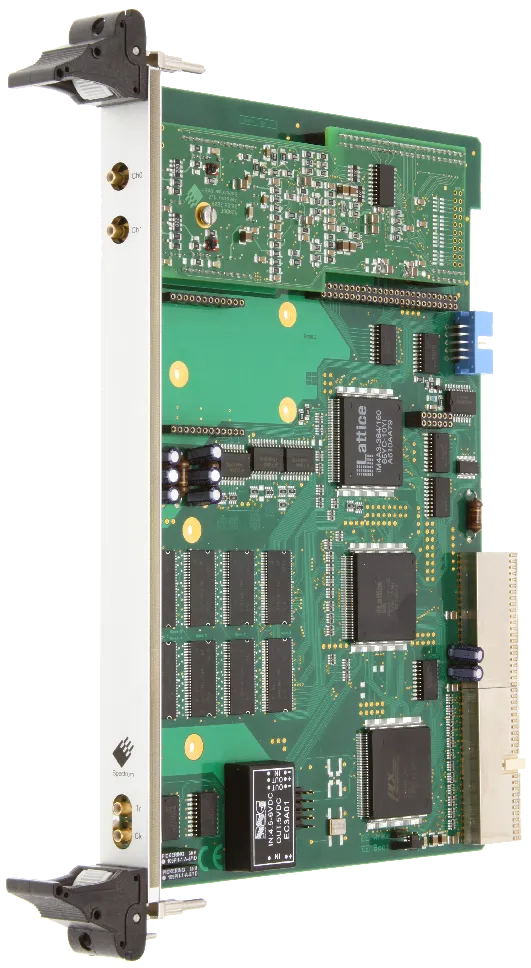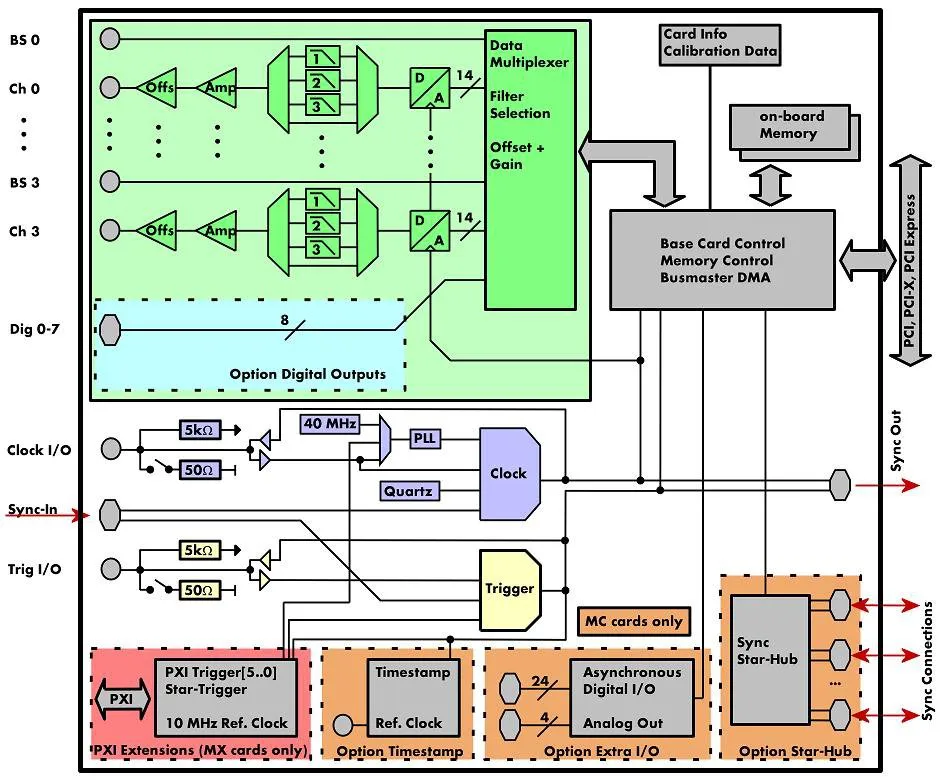THIS PRODUCT IS END-OF-LIFE. Show more about end-life-products policy.
Product:
MC.6022
14 bit Arbitrary Waveform Generator
Description:
The MC.60xx series offer 8 different versions of arbitrary waveform generators for the CompactPCI bus. With these boards it is possible to generate free definable waveforms on several channels synchronously. There are up to four channels on one board with a maximum sampling rate of 125 MS/s. The internal standard Sync-bus allows the setup of synchronous multi channel systems with higher channel numbers. It is also possible to combine the arbitrary waveform generator with other boards of the MC product family like analogue or digital acquisition boards. With the up to 256 MSample large on-board memory long waveforms can be generated even with high sampling rates. The memory can also be used as a FIFO buffer to make continuously data transfer from PC memory or hard disk.
Facts & Features:
- Up to 60 MS/s on 4 channels
- Simultaneous generation on all channels
- Output up to +/-3 V in 50 Ohm
- Offset and amplitude programmable
- Up to 256 MSample on-board memory
- 32 MSample standard memory installed
- 3 software selectable filters
- Amplifier option available for ±10 V
- Synchronization possible
- CompactPCI 6U compatible
- Robust industrial connections
- Up to 16 cards can be synchronized
Application examples:
- IQ Base signal generation
- Production tests
- Replay of acquired test data
- Radar signal simulation
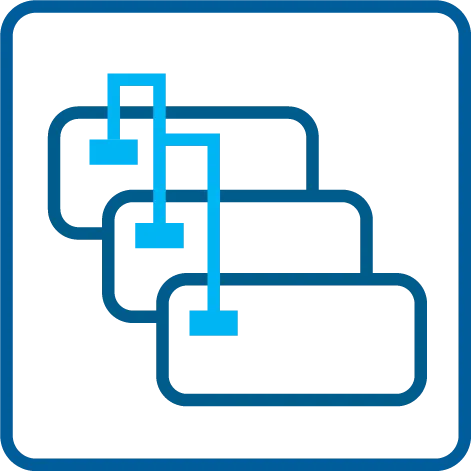
Cascading (Optional)
The cascading option synchronizes up to 4 Spectrum boards internally. It's the simplest way to build up a multi channel system. On the internal synchronisation bus clock and trigger signals are routed between the different boards. All connected boards are then working with the same clock and trigger information. There is a phase delay between two boards of about 500 picoseconds when this synchronization option is used.
Extra I/O (Optional)
The Extra I/O module adds 24 additional digital I/O lines and 4 analog outputs on an extra connector. These additional lines are independent from the standard function and can be controlled asynchronously. There is also an internal version available with 16 digital I/Os and 4 analog outputs that can be used directly at the rear board connector.
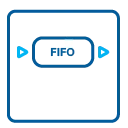
FIFO mode
The FIFO mode is designed for continuous data transfer between measurement board and PC memory (with up to 100 MByte/s) or hard disk. The control of the data stream is done automatically by the driver on interrupt request. The complete installed on-board memory is used for buffer data, making the continuous streaming extremely reliable.Repeated Output
When repeated output is used the data of the on-board memory is replayed continuously until a stop command is executed or N times. As trigger source one can use the external TTL trigger or the software trigger.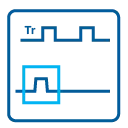
Singleshot Output
When singleshot output is activated the data of the on-board memory is replayed exactly one time. As trigger source one can use the external TTL trigger or the software trigger.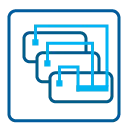
Star-Hub (Optional)
The star-hub is an additional module allowing the phase stable synchronization of up to 16 boards in one system. Independent of the number of boards there is no phase delay between all channels. The star-hub distributes trigger and clock information between all boards. As a result all connected boards are running with the same clock and the same trigger. All trigger sources can be combined with OR/AND allowing all channels of all cards to be trigger source at the same time. The star-hub is available as 5 card and 16 card version. The 5 card version doesn't need an extra slot.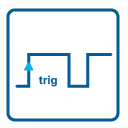
External Trigger
All boards can be triggered using an external TTL signal. It's possible to use positive or negative edge also in combination with a programmable pulse width. An internally recognized trigger event can - when activated by software - be routed to the trigger connector to start external instruments.

Gated Replay
The Gated Sampling option allows data replay controlled by an external gate signal. Data is only replayed if the gate signal has a programmed level.
Multiple Replay
The Multiple Replay option allows the fast repetition output on several trigger events without restarting the hardware. With this option very fast repetition rates can be achieved. The on-board memory is divided in several segments of same size. Each of them is generated if a trigger event occurs.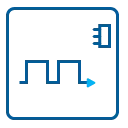
External Clock
Using a dedicated connector a sampling clock can be fed in from an external system. It's also possible to output the internally used sampling clock to synchronize external equipment to this clock.
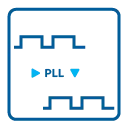
Reference Clock
The option to use a precise external reference clock (normally 10 MHz) is necessary to synchronize the board for high-quality measurements with external equipment (like a signal source). It's also possible to enhance the quality of the sampling clock in this way. The driver automatically generates the requested sampling clock from the fed in reference clock.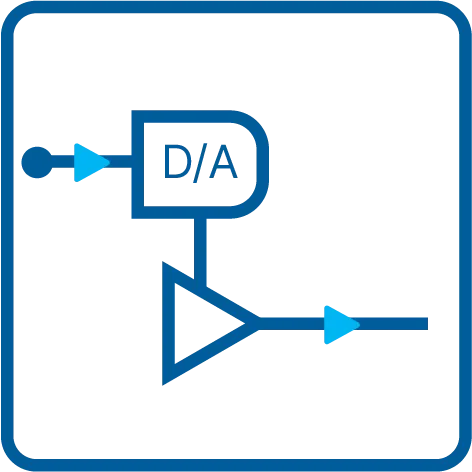
10 V Amplifier Card (Optional)
The amplifier board allows the output of +/-10 V on up to four channels without software modification. The standard outputs of the card are amplified by factor 3.33. The amplifier which has 30 MHz bandwidth has an output impedance of 50 Ohm. This allows +/-10 V with high impedance termination or +/-5 V with 50 ohm termination.
Digital Outputs (Optional)
This option outputs additional synchronous digital channels phase-stable with the analog data. When this option is installed there are 2 additional digital outputs for every analog D/A channel.
Programmable Offset + Amplitude
The Spectrum Arbitrary Waveform Generators are equipped with a very wide programmable output offset and amplitude. This allows to adapt the output signal level to the needs of the stimulated device while also having the maximum output resolution available for the signal.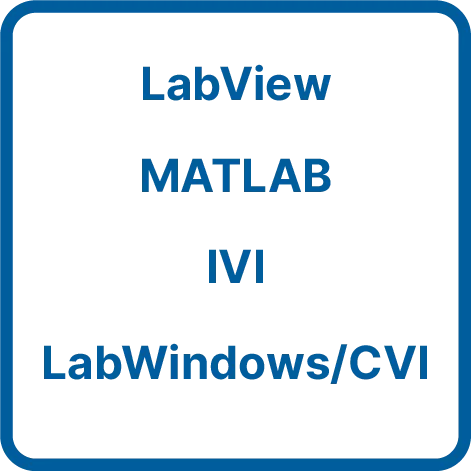
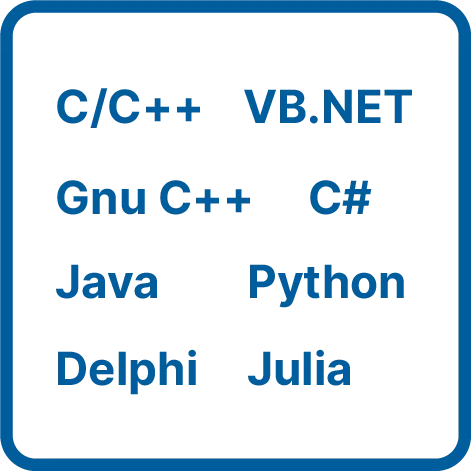
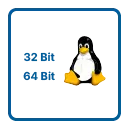
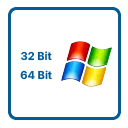
This standard driver is included in the card delivery and it is possible to get the newest driver version free of charge from our homepage at any time. There are no additional SDK fees for the classical text-based programming. All boards are delivered with drivers for Windows 7, Windows 8, Windows 10 and Windows 11, all 32 bit and 64 bit.
| Product | Channels | Max. Samplerate | Max. Bandwidth |
|---|---|---|---|
| MC.6011 | 2 | 20 MS/s | 10 MHz |
| MC.6012 | 4 | 20 MS/s | 10 MHz |
| MC.6021 | 2 | 60 MS/s | 30 MHz |
| MC.6030 | 1 | 125 MS/s | 60 MHz |
| MC.6031 | 2 | 125 MS/s | 60 MHz |
| MC.6033 | 2 | 125 MS/s | 60 MHz |
| MC.6034 | 4 | 125 MS/s | 60 MHz |
| On different platforms | Bus | Max. Bus Transfer speed |
|---|---|---|
| M2i.6022 | PCI-X | 245 MByte/s |
| M2i.6022-Exp | PCI Express x1 | 160 MByte/s |
| MI.6022 | PCI | 100 MByte/s |

D/A Amplifier Card (Optional)
The D/A amplifier card is especially designed to match the Spectrum arbitrary waveform generator products and has a bandwidth of 30 MHz. Each of the 1, 2 or 4 channels has a fixed amplification and can drive +/-10 V output level into high impedance and +/-5 V output level into 50 ohm. The output amplfiers are completely calibrated together with the AWG card.Documents
Datasheet of the MC.60xx family |
21.02.2022 | 217 K | ||
Manual of MC.60xx family |
21.02.2022 | 3 M | ||
AWG Amplifier PCIe/PCI/PXI Card data sheet |
21.02.2022 | 175 K | ||
MI / MC StarHub module datasheet |
21.02.2022 | 218 K | ||
MI / MC Extra I/O module datasheet |
21.02.2022 | 129 K | ||
Data sheet of SBench 6 |
15.01.2024 | 999 K | ||
Manual for MATLAB drivers for MI/MC/MX |
21.02.2022 | 70 K | ||
LabVIEW Manual for MI/MC/MX.60xx |
21.02.2022 | 208 K | ||
Manual for SBench 6 |
21.02.2022 | 7 M |
WINDOWS DRIVER + SOFTWARE
MI/MC/MX/PCI.xxx Windows 98/NT 32 Bit Drivers |
21.02.2022 | 353 K | ||
MI/MC/MX/PCI.xxx Windows XP/Vista 32 Bit Drivers |
21.02.2022 | 381 K | ||
MI/MC/MX/PCI.xxx Windows XP/Vista 64 Bit Drivers |
21.02.2022 | 579 K | ||
MI/MC/MX/PCI.xxx Windows 7/8 32 Bit Drivers |
4 | 21.02.2022 | 397 K | |
MI/MC/MX/PCI.xxx Windows 7/8 64 Bit Drivers |
4 | 21.02.2022 | 604 K | |
MI/MC/MX/PCI.xxx Windows 10 32 Bit Drivers |
4 | 21.02.2022 | 415 K | |
MI/MC/MX/PCI.xxx Windows 10/11 64 Bit Drivers |
4 | 21.02.2022 | 627 K | |
C/C++ driver header and library files |
7.01 | 22.04.2024 | 43 K | |
SBench 5 Installer |
5.3.0 | 21.02.2022 | 5 M | |
SPEasyGenerator installer |
22.04.2024 | 6 M | ||
SBench 6 (32-bit) Installer / Windows 7, 8, 10 |
6.5.08 | 22.04.2024 | 36 M | |
SBench 6 (64-bit) Installer / Windows 7, 8, 10, 11 |
6.5.08 | 22.04.2024 | 39 M | |
MI / MC / MX MATLAB driver + examples |
21.02.2022 | 714 K | ||
MI / MC / MX LabVIEW Driver |
21.02.2022 | 8 M | ||
MI / MC / MX Examples for C/C++, Delphi, VB, LabWindows/CVI, ... |
21.02.2022 | 700 K |
LINUX DRIVER + SOFTWARE
MI / MC / MX Linux 32 bit and 64 bit Drivers |
4 | 21.02.2022 | 18 M | |
SBench 6 Linux 32 (.rpm) |
6.5.08 | 22.04.2024 | 26 M | |
SBench 6 Linux 64 (.rpm) |
6.5.08 | 22.04.2024 | 26 M | |
SBench 6 Linux 32 (.deb) |
6.5.08 | 22.04.2024 | 23 M | |
SBench 6 Linux 64 (.deb) |
6.5.08 | 22.04.2024 | 22 M | |
SBench6 Jetson (.deb) |
6.5.08 | 22.04.2024 | 11 M | |
MI / MC / MX Linux Examples (C/C++) |
21.02.2022 | 53 K |
Firmware
Product Notes
| Trigger and Sync | Trigger, Clock and Synchronization Details at high-speed Digitizers |
21.02.2022 | 1 M | |
| AWG Waveforms | Creating AWG Waveforms in SBench 6 using Equations |
21.02.2022 | 479 K | |
| Create & Capture AWG Waveforms | Creating , Capturing and Transferring Waveforms for AWG's using SBench 6 |
21.02.2022 | 2 M | |
| AWG Waveforms D | Erzeugen von AWG-Signalen durch Gleichungen in SBench 6 |
21.02.2022 | 459 K |
Application Notes
| Teaming AWG with Digitizer | Teaming an Arbitrary Waveform Generator with a Modular Digitizer |
21.02.2022 | 919 K | |
| Introduction to Modular Arbitrary Function Generators | An Introduction to Modular Arbitrary Function Generators |
21.02.2022 | 701 K | |
| Arbitrary Waveform Generator Operating Modes | Using Arbitrary Waveform Generator Operating Modes Effectively |
21.02.2022 | 481 K |
